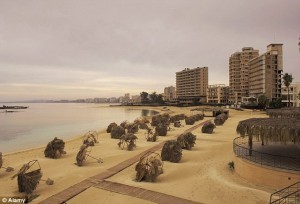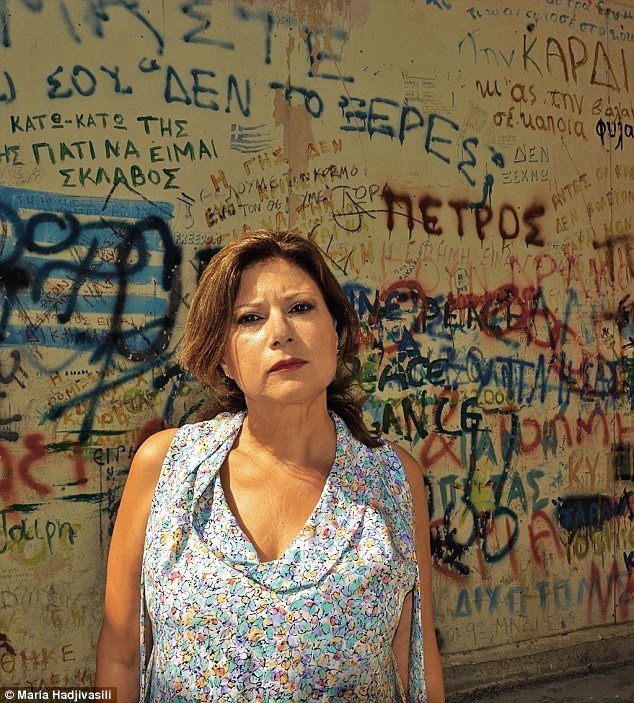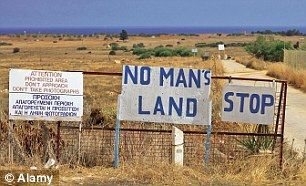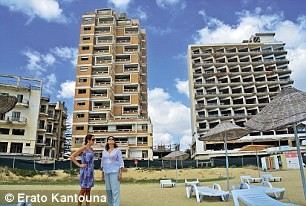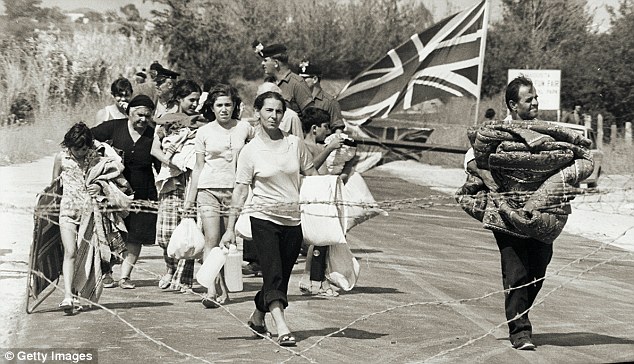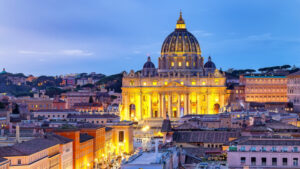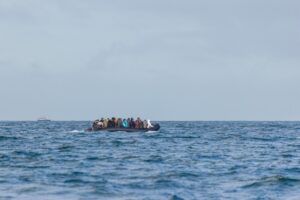Author Victoria Hislop writes about her visit to Famagusta wth lawyerMaria Hadjivasili, who had escaped with her family in 1974 when the city became a ghost town overnight after its inhabitants fled from the invading Turkish army. Ms. Hislop met the Cypriot lawyer, in her Fifties, when she was on a research trip to Cyprus and was captivated by the tale of how Ms. Hadjivasili’s idyllic path took a different twist when she was aged 17 and confict divided her island.


That was when the glamorous Famagusta with its sophisticated seaside beauty and luxury hotels emptied. Now it has decayed. Worst still than the buildings of Famagusta is the situation of the people who were once neighbors, but are now split on different sides of a border. Ms. Hislop writes “there were very good relations between the two communities, with mutual respect for each others customs and religions.”
“Politics abruptly shattered the peace of island life,” writes Hislop. “On 15 July, the Greek military junta staged a coup in Cyprus, deposing President Makarios. Within days the Turkish government responded by sending troops to the island to ‘protect’ Turkish Cypriots. They landed at Kyrenia, 50 miles north of Famagusta. Maria watched the invasion on television. ‘It seemed far away, as though it was in another country,’ she recalls. Soon people who had fled from Kyrenia began to arrive in the capital Nicosia, and word spread of what they had witnessed. ‘We heard that civilians had been killed and women raped. People were anxious for their daughters. I heard that one of my schoolfriends was raped and killed.’”
Ms. Hislop tells of the day when Ms. Hadjivasili heard the sound of Turkish bombers and how they had to leave their home immediately. They climbed into her father’s Volvo with just the clothes they were wearing and headed to Agia Napia never to return home again.
From being affluent, Ms. Hadjivasili became one of a long list of refugees. “We had nothing: no furniture, no clothes, and my father along with thousands of others queued up at the Red Cross to get us tins of food.”
Back at Famagusta after all the years, “the crumbling hotels behind the rusting barbed wire still cast their shadows across the sand. Nature has reclaimed the area; plants have taken root in cracks in the walls.”
Ms. Hislop points to the U.N. Security Council resolution calling for the return of Famagusta to the people who lived here, but the Turkish governments have refused entry so “the once vibant tourist area remains entirely sealed off so nobody may enter.”
The opportunity for Ms. Hadjivasili to see her home is a painful one. She finds her home taken over by Turkish settlers and all the trees in her family’s orange grove have been cut down.
Not having visited Famagusta since her teenage years, Ms. Hadjivasili feels like a teenager. She feels the same air and sand beneath her feet, but “the sight of derelict buildings is almost incomprehensible” and there is a difference between what she sees and feels.
CLICK HERE for Victoria Hislop’s full text as it appears on The Daily Mail.
Ask me anything
Explore related questions
